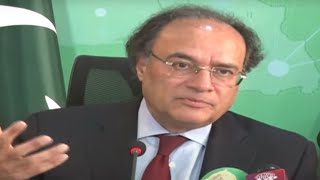Punjab has highest incidence of cardiovascular diseases where smoking has emerged as the major cause of heart attacks in the Southern Punjab while "poor dietary habits and lack of exercise" are the basic reasons behind early onset of heart ailments in the people of upper Punjab, leading cardiologists associated with Pakistan Cardiac Society (PCS) has disclosed.
"Research by cardiologists in Punjab and local data has revealed that smoking is the major cause of heart ailments in Southern Punjab while poor dietary habits and lack of exercise are the leading cause of cardiovascular ailments among the people of upper Punjab", eminent cardiologist and head of cardiology department, Nishtar Medical College and Hospital, Multan Professor Haroon Aziz Babar told a news conference here at a local hotel.
Pakistan Cardiac Society (PCS) and Health Research Advisory Board (Healthrab) also signed a Memorandum of Understanding on the occasion to award 3rd Cardiology Research Award at the 48th CardioCon to be held in Multan in November this year where young cardiologists would be given cash prizes on their research in the area of cardiology.
President of the Pakistan Cardiac Society Professor Naeem Aslam, Vice President of the Health Research Advisory Board and leading diabetologist of the country Professor Abdul Basit and Professor Feroz Memon from Isra University Hyderaabad also spoke on the occasion. Professor Haroon Aziz maintained that smoking, extremely poor dietary choices, sedentary lifestyle, growing obesity as well as hypertension and diabetes were the major risk factors resulting in growing cardiovascular diseases in Pakistan, especially in Punjab.
"There is an urgent need to identify the local causes of cardiovascular diseases, which is the leading cause of death in Pakistan. Cardiology research awards launched by the PCS and Healthrab would promote culture of research and help in formulating strategies to prevent cardiac ailments in the country", he maintained.
He informed that next CardioCon would be held in Multan in November where six cardiologists would be given cash prizes and awards on their research and hoped that a large number of cardiologists from entire Pakistan would present their papers for evaluation.
Another leading cardiologist and President of PCS Professor Naeem Aslam claimed that Pakistanis were becoming heart patients at least 10 to 15 years earlier than people of Europe and United States due to their poor lifestyle and other risk factors including growing obesity, hypertension and diabetes. "AS many as 52 percent Pakistanis are hypertensive and 26 percent at diabetics, which should be cause of national concern", he added.
"In Pakistan, seed for cardiovascular or build-up of plaque in the arteries of children starts at the age of 6-10 years, which is highly alarming. Our children are no more used to physical activities while they are addicted to junk food, which is giving rise to childhood obesity", Professor Naeem Aslam claimed and added that there was an immediate need to apprise people of habits and risk factors leading to deadly cardiovascular disease.
He said in order to prepare a preventive cardiology strategy, Pakistan Cardiac Society and Healthrab had joined hands to promote local research so that actual reasons and causes resulting in heart attacks and other cardiac ailments could be ascertained as lifestyle and genetic makeup of Pakistanis were quite different than Europeans and Americans.
Vice President of Health Research Board (Healthrab) Professor Abdul Basit deplored that Pakistan was far behind in the area of scientific research as compared to countries in the region especially India and added that in order to increase scientific knowledge of our doctors and physicians, Healthrab had launched the Cardiology Research Award, which were becoming very popular among young researchers and doctors.
He claimed that even the government of Pakistan had recognized the Healthrab and it was indulged in conducting research in the area of healthcare in collaboration with Pakistan Health Research Council (PHRC) and Drug Regulatory Authority of Pakistan (DRAP).
On the occasion, he urged that authorities to ban one and two-room schools in the country and only allow premises with vast playgrounds to operate as schools so that children could indulge in physical activities and added that there should be a complete ban on junk food outlets around the schools and for the children and teenagers in the country.-PR
BR100
12,079
Decreased By
-111.6 (-0.92%)
BR30
36,602
Increased By
19.8 (0.05%)
KSE100
116,053
Decreased By
-202.4 (-0.17%)
KSE30
36,578
Decreased By
-25.8 (-0.07%)





















Comments
Comments are closed.